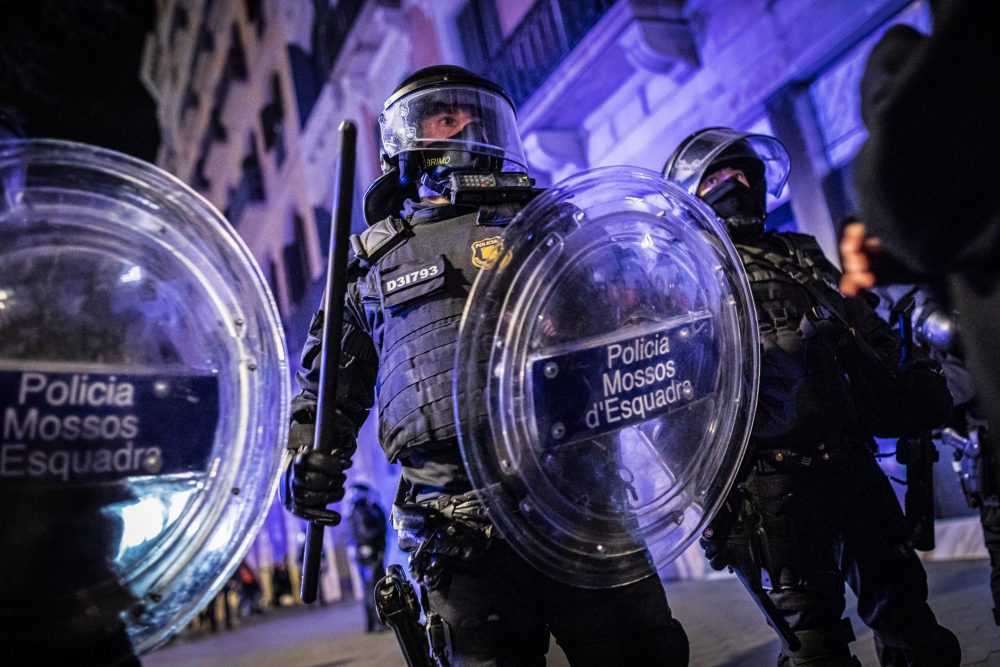The approval of a study commission on the police model in Parliament is a step forward towards a more transparent police force that respects human rights.

Amnesty International Catalunya and Irídia believe that the focus of the commission should be on the review of the mechanisms of control and accountability of police actions.
Barcelona.- The Commission’s study covers very important aspects of police work related to the respect and protection of citizens’ rights and freedoms, such as the review of the public order model, the transparency of police protocols and instructions, the review of the focus of the information commission and the review of police action control mechanisms.
The two organizations have promoted and contributed to the creation of this Parliamentary Commission and hope that its work and its final conclusions will serve to establish the basis for a more transparent police force that respects human rights.
Amnesty International Catalunya and Irídia believe that the focus should be placed on the revision of police control mechanisms as a key issue of the Commission. Beyond the debate on different police or public order management models, it is necessary to establish accountability mechanisms that provide justice in cases of police malpractice and that guarantee the right to truth, justice and reparation for victims.
The two organizations have on numerous occasions expressed concern about the impunity of cases of excessive use of force and ill-treatment perpetrated by police officers in Catalonia and Spain. “Although human rights violations by police officers are not systematic, they are not isolated cases, and the reason why they continue to occur is linked to the shortcomings of internal and external control mechanisms to sanction these malpractices,” said Adriana Ribas, coordinator of Amnesty International.
At present, complaints against police officers encounter many obstacles in identifying, sanctioning and correcting uses of force that are contrary to international human rights standards. For this reason, internal and external control mechanisms need to be strengthened and made more independent, with new legal and disciplinary procedures and greater transparency, in order to prevent, investigate and sanction possible improper and abusive actions, and thus put an end to impunity, arbitrariness and, in the long run, the loss of public confidence.
The creation of an independent investigation mechanism can contribute to more exhaustive, impartial and immediate investigations of possible human rights violations committed by police officers. These external control mechanisms already operate in other police forces in our environment such as Belgium, the United Kingdom, Ireland or Norway. The Council of Europe itself recommends the creation of such bodies and recognizes that independent and effective investigation of complaints against the police increases public confidence and ensures that misconduct and mistreatment do not go unpunished. “Citizens must have an impartial and independent tool to turn to in the face of serious rights violations caused by alleged police actions,” said Andrés García Berrio, co-director of Irídia.
Faced with these challenges, the parliamentary committee has set itself a working period of one year. Amnesty International and Irídia hope that it will start working as soon as possible and that the debate will be constructive and in line with the established objectives and the demands of citizens. The two organizations have offered to the parliamentary groups to propose international experts who can appear to report on experiences and practices in other countries. In addition to the participation of political leaders, members of the Interior and agents of the Mossos d’Esquadra, Amnesty International and Irídia insist on the participation of specialized civilian entities and victims of police malpractice and the consequent lack of accountability.
Beyond the short-term changes that can be made to the Mossos d’Esquadra, Amnesty International and Irídia consider that the conclusions of the commission must serve as a starting point for the future Law of the Police System of Catalonia, an unavoidable subject for this legislature and an opportunity to consolidate changes and mark the future of the Police that is wanted, more respectful with the international norms of human rights.
